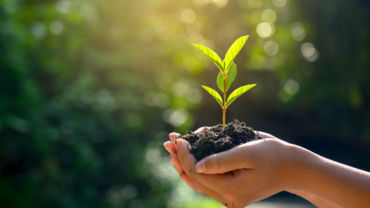Online sexual exploitation and abuse of women and girls is growing at an alarming pace globally, according to a new report.
The report also notes that technological advancements and the internet have made it much easier to locate, groom, and sexually exploit women and girls with a level of impunity that is shocking — yet the full scope of the problem is largely unknown, chiefly because so many cases go unreported.
The report, Ending Online Sexual Exploitation and Abuse of Women and Girls: A Call for International Standards, is published by Equality Now, an international human rights organization that focuses on using the law to protect and promote the rights of all women and girls around the world, and the Thomson Reuters Foundation, the corporate foundation arm of Thomson Reuters, with legal research assistance from TrustLaw, Thomson Reuters Foundation’s global pro bono service; and editorial and design assistance from Thomson Reuters® Practical Law.
“Predators are increasingly using social media and online gaming platforms to target potential victims because those platforms often allow participants to remain anonymous and provide very little oversight,” according to Tsitsi Matekaire, Global Lead for End Sex Trafficking at Equality Now and one of the authors of the report.
As the report describes, sexual exploitation and abuse include many forms of coercion and predatory actions, and online sexual exploitation and abuse additionally encompasses several sexually exploitative and harmful behaviors that occur online through the use of digital technologies, including conducting online grooming, live-streaming of sexual abuse, distributing child sexual abuse material, and engaging in online sexual coercion and extortion, sex trafficking, and image-based sexual abuse.
“Predators are increasingly using social media and online gaming platforms to target potential victims because those platforms often allow participants to remain anonymous and provide very little oversight.”
— Tsitsi Matekaire, Global Lead for End Sex Trafficking at Equality Now
Further, women and girls are particularly vulnerable as sexual predators take advantage of the sex, gender, and structural discrimination inherent in society, as well as the economic inequality that make women and girls so vulnerable to exploitation and abuse.
International standards needed
While evolving technology continues to act as an unfortunate accelerant to this problem, the situation is compounded because international and national legal frameworks have not kept pace. A patchwork of national and international laws exist that address different components of online sexual exploitation and abuse, but do not adequately define the problem or consider how technology is making it worse. For example, current international and national laws lack any clear definitions of what constitutes “harmful content” online and generally rely on local law enforcement to identify perpetrators, who in fact, may be operating anywhere in the world.
These inconsistencies have made it difficult to identify and prosecute perpetrators, as even those laws that do address online sexual exploitation and abuse were crafted before certain major technological developments, such as camera-ready technology. Worse yet, since the internet is essentially borderless, any legal framework that has a chance of successfully thwarting abuse must be global in scope. That is why the report urges world leaders to establish global legal standards to address online sexual exploitation and abuse, which could then be adopted worldwide.
The report examines the law surrounding online sexual exploitation and abuse at the international and regional level, with a focus on Europe. It also examines the laws surrounding online sexual exploitation and abuse at the national level, focusing on five countries — Kenya and Nigeria, chosen because they are two of Africa’s leaders on internet use, especially by young people; India, because it is a growing technology hub; the United Kingdom (England and Wales) and the United States, because they are both key players in the fight against online child sexual abuse and many of the digital service providers and platforms are domiciled in the US.
As the report delves into these key issues, it also explores the balance between digital privacy, freedom of expression, protection, and online safety. It also discusses the challenges of determining which country can prosecute a case of online sexual exploitation and abuse — posed by the multi-jurisdictional nature of online sexual abuse and regulating service providers and platforms.
Overall, the report utilizes a survivor-centric approach to illustrate the impact of online sexual exploitation and abuse, highlighting the challenges faced in keeping people safe in a rapidly evolving online environment.
You can obtain a full copy of the report, Ending Online Sexual Exploitation and Abuse of Women and Girls: A Call for International Standards, from Equality Now and the Thomson Reuters Foundation, here.







